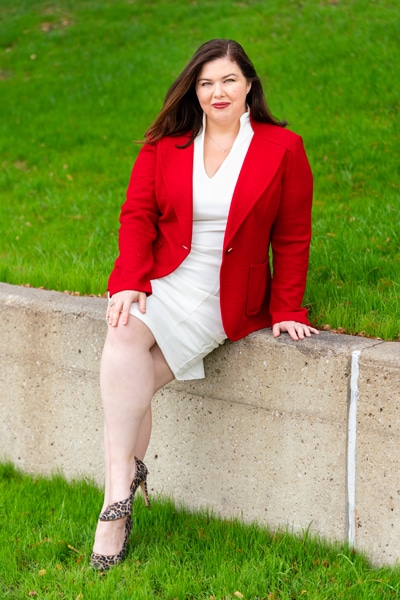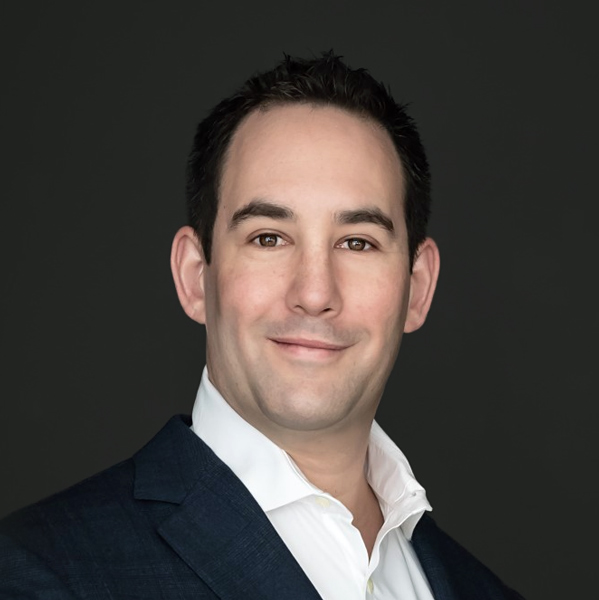|
Getting your Trinity Audio player ready...
|
When she was six years old, Anne Brooksher-Yen’s Halloween costume was a professional business get-up and her mother’s briefcase: she was dressed as a lawyer, for a career she already knew she wanted. Her hometown of Yuma, Arizona, was far from New York, where she’d attend law school and spend her first decade as an attorney—but it was close to the Mexican border, a connection that would later motivate her to do pro bono work for asylum seekers.
Brooksher-Yen is now the chief compliance officer and chief counsel for litigation, environmental law, and quality at global chemical and specialty materials company Celanese. A litigator by background, Brooksher-Yen leads a number of different specialty areas within her legal department. “That’s one of the things that drew me to Celanese—they’ve encouraged me to stretch and try new, hard things,” she says. “It’s dynamic and challenging. And really, really fun.”
Making It Up as You Go
She was hired at DLA Piper in 2006, a job Brooksher-Yen says was particularly appealing to her because the firm had a strong female partner who would become a mentor. The young attorney worked on contractual matters pertaining to the landmark Tobacco Master Settlement Agreement, which essentially rewrote the rules for cigarette advertising and established compensation to states for cigarette-related illnesses. “I loved that work,” Brooksher-Yen says. “I got to work for some of the smartest people I’ve ever met in my life, and it gave me the opportunity to build my career on a great foundation.”
Part of her fascination with the work was that the arbitration wasn’t governed under any particular set of regulations. “It was ad hoc, which meant that a lot of it was stuff we made up as we went along,” Brooksher-Yen says. “We had brilliant arbiters who were former federal judges, and a general counsel who really valued diversity. Part of getting on my feet as a trial lawyer was the fact that the client encouraged their firms to field a team of diverse people.”

Brooksher-Yen was a beneficiary of that client’s push for a more representative field of attorneys, and she is continually looking to push for diversity now that she’s in her own executive roles. “I had the opportunity to get a seat at the table very early in my career in a billion-dollar arbitration,” she says.
“It formed a lot of the way I thought about both how you manage and try cases as well as how you manage your outside counsel roster,” she continues. “It made me very conscious of how to encourage your outside counsel to reflect the kind of world you want to see more broadly in the legal profession.”
Brooksher-Yen says there are dozens of studies that illustrate her point—but she is also a living, breathing example of what a focus on diversity can accomplish. “There are fairness components to this and the fact that everybody deserves a shot at the table,” she explains. “But it’s also results driven. I truly, deeply believe that people who come from a diversity of backgrounds are going to give me the best result for my client, my organization, and that I am a better lawyer for being challenged by a wide variety of perspectives and opinions.”
A Passion for Pro Bono
In elevating Brooksher-Yen to the executive suite, Celanese has also engaged a lawyer deeply committed to helping others outside of her day-to-day responsibilities. She helped found Celanese’s first formal pro bono program in 2019.
“My hope is to really deepen and expand the program next year, especially with our partners in the community like Paul Quinn College [the oldest historically black college west of the Mississippi],” Brooksher-Yen says. “They have an incredible message and program, and I look forward to deepening both my personal and our organizational relationship with them.”
Brooksher-Yen’s most well-known pro bono victory is a story that made national headlines. After the end of the government’s “Don’t Ask, Don’t Tell” military policy in 2011, thousands of veterans were able to appeal to have their dismissals reclassified as honorable—including Hal Faulkner, who had been dishonorably discharged from the Marine Corps in 1956 for being gay.
When his case came to Brooksher-Yen, Faulker had terminal cancer and his doctors had given him just weeks to live. His dying wish was to have his discharge changed to an honorable one, but the process usually took six months or more. Brooksher-Yen asked the military to expedite the process, and succeeded; the Marines sent an official letter to Faulkner in just two weeks.
Brooksher-Yen flew to Fort Lauderdale, her first night away from her six-month-old son, to attend a small service at Faulkner’s home celebrating his honorable discharge. “I just remember sitting with Hal at dinner the night before the ceremony; he was so close to the end of his life, but he reached across the table to thank me,” Brooksher-Yen says. “Those are the moments you live for, but also the ones you die for. The legal work wasn’t the challenging part. It was telling his story and getting enough people to care about it to get the job done.”
***
Weil, Gotshal & Manges LLP:
“Anne skillfully and thoughtfully represents her company’s business interests. She is a doer, and her track record speaks volumes. We are proud to partner with and support her efforts to improve the legal profession.”
–Paul R. Genender, Litigation Partner


